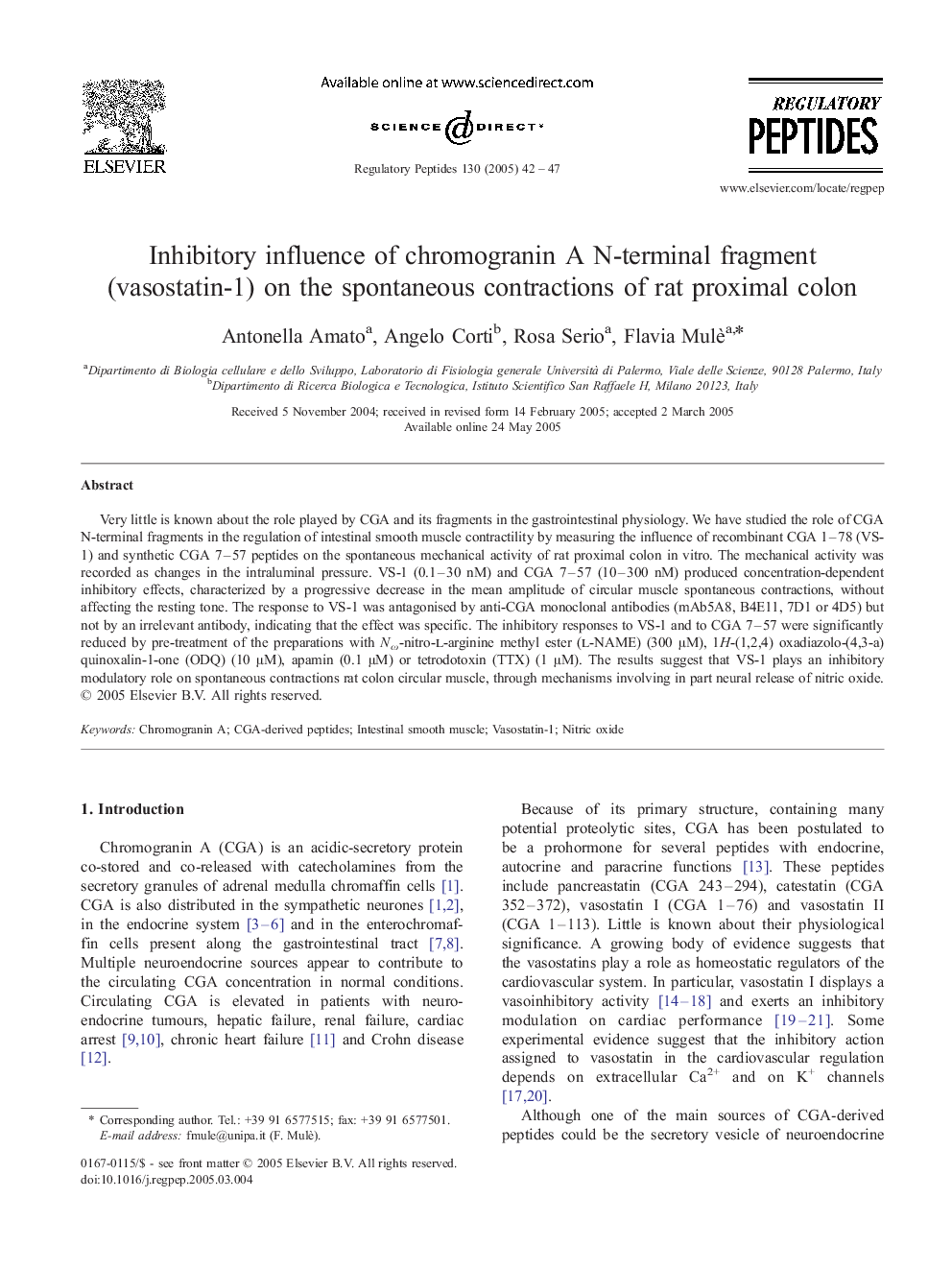| Article ID | Journal | Published Year | Pages | File Type |
|---|---|---|---|---|
| 9894390 | Regulatory Peptides | 2005 | 6 Pages |
Abstract
Very little is known about the role played by CGA and its fragments in the gastrointestinal physiology. We have studied the role of CGA N-terminal fragments in the regulation of intestinal smooth muscle contractility by measuring the influence of recombinant CGA 1-78 (VS-1) and synthetic CGA 7-57 peptides on the spontaneous mechanical activity of rat proximal colon in vitro. The mechanical activity was recorded as changes in the intraluminal pressure. VS-1 (0.1-30 nM) and CGA 7-57 (10-300 nM) produced concentration-dependent inhibitory effects, characterized by a progressive decrease in the mean amplitude of circular muscle spontaneous contractions, without affecting the resting tone. The response to VS-1 was antagonised by anti-CGA monoclonal antibodies (mAb5A8, B4E11, 7D1 or 4D5) but not by an irrelevant antibody, indicating that the effect was specific. The inhibitory responses to VS-1 and to CGA 7-57 were significantly reduced by pre-treatment of the preparations with NÏ-nitro-l-arginine methyl ester (l-NAME) (300 μM), 1H-(1,2,4) oxadiazolo-(4,3-a) quinoxalin-1-one (ODQ) (10 μM), apamin (0.1 μM) or tetrodotoxin (TTX) (1 μM). The results suggest that VS-1 plays an inhibitory modulatory role on spontaneous contractions rat colon circular muscle, through mechanisms involving in part neural release of nitric oxide.
Related Topics
Life Sciences
Biochemistry, Genetics and Molecular Biology
Biochemistry
Authors
Antonella Amato, Angelo Corti, Rosa Serio, Flavia Mulè,
